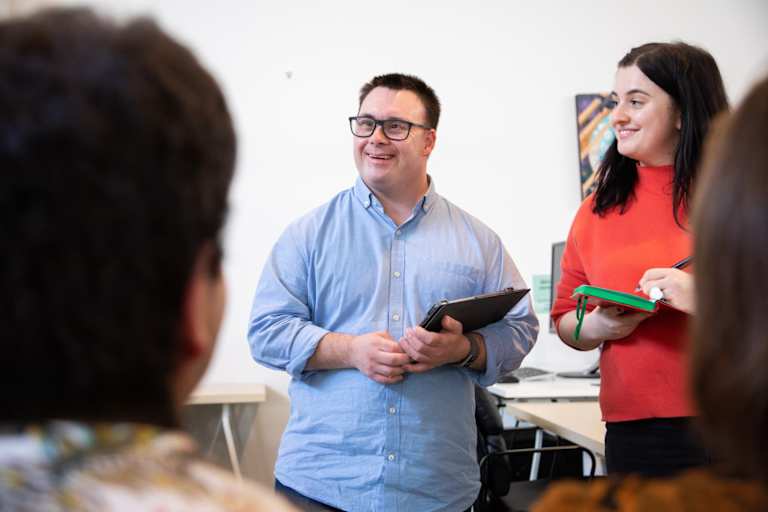How to Become an Licensed Counselor in Maryland
- Licensure Requirements
- How Long Does It Take?
- Out-of-State Licensing
- Licensing Renewal
- Salary Expectations
- Professional Organizations
- FAQ
Maryland offers counselors a promising job outlook and competitive salaries. To become a counselor in Maryland, you must have a graduate degree and a state-issued license. Consult this guide to learn about the Maryland counseling license process, education, experience, and exam requirements, and salary prospects once you enter the field.
Maryland Counselor Licensure Requirements
Before you can work as a counselor in Maryland, you must obtain a state-issued license in your counseling area.
The Maryland Department of Health Board of Professional Counselors and Therapists is responsible for establishing, issuing, and renewing licenses for licensed clinical professional counselors (LCPCs) and licensed clinical marriage and family therapists (LCMFTs). The Maryland State Department of Education certifies teachers and other educational professionals, including school counselors.
How Long Does it Take to Become a Counselor in Maryland?
Requirements vary by career path, but you can expect to spend around 6-8 years working toward your Maryland counseling license.
All Maryland counselors must complete a bachelor’s and master’s degree. These programs generally take four years and two years, respectively. However, several factors can affect the time needed to graduate, such as whether you attend school full-time or part-time, enroll in an accelerated program, or take a heavier or lighter than normal course load.
If you plan to become an LCPC or LCMFT, plan to spend two additional years completing supervised experience hours before obtaining your professional license.
Out-of-State Licensing Reciprocity in Maryland
You can transfer your out-of-state LPC or LMFT license if requirements in your current state are equivalent to those in Maryland. You must submit an out-of-state application and documentation of your current license, clinical experience, and exam scores.
Maryland is also a member of the Counseling Compact. Once fully operational, Compact membership will authorize multi-state practice for licensed counselors from all member states.
Maryland offers a dedicated licensure pathway for school counselors with a valid out-of-state license and at least 27 months of school counseling experience. Documentation of education and experience is required.
How to Renew a Counseling License in Maryland
Maryland requires LCPCs and LCMFTs to renew their licenses every two years. Professionals must complete 40 continuing education units of board-approved activities during each renewal period. Options include attending courses, workshops, and seminars, or participating in the authorship, editing, or review of scholarly publications.
Maryland school counselor licenses are valid for five years. Renewal requires a minimum of 90 professional development hours, including continuing education that address depression, trauma, violence, substance abuse, youth suicide, and best practices for identifying and distributing student crisis resources to parents or guardians.
Salary Expectations for Counselors in Maryland
According to the Bureau of Labor Statistics (BLS), counseling salaries in Maryland rank considerably higher than national averages, ranging from $47,800 to $84,900 annually.
Marriage and family therapists are among the top earners, making over $12,000 more per year than the national average. Similarly, Maryland school counselors earn nearly $8,000 more than the national average.
The growing demand for counseling services and the need for licensed specialists contribute to a promising job outlook. According to Projections Central, employment of mental health counselors, marriage and family therapists, and school counselors is projected to grow by at least 14% from 2022-2032, much higher than national projections for these specializations.
| Occupation | Average Hourly Salary | Average Annual Salary |
|---|---|---|
| Educational, Guidance, and Career Counselors and Advisors | $38.18 | $79,410 |
| Marriage and Family Therapists | $40.82 | $84,900 |
| Rehabilitation Counselors | $22.98 | $47,800 |
| Substance Use, Behavioral Disorder, and Mental Health Counselors | $33.09 | $68,830 |
| Counselors, All Other | $35.43 | $73,680 |
Professional Organizations for Counselors in Maryland
- Maryland Counseling Association: MCA, the state affiliate of the American Counseling Association, supports professional counselors and counseling students through continuing education, conferences, job listings, and advocacy in support of professional counselors. The Association’s Emerging Leaders Program provides opportunities to benefit from mentorship, build professional networks, and engage in projects that develop leadership skills.
- Maryland School Counselor Association: A division of the American School Counselor Association, MSCA promotes the profession of school counseling through professional development opportunities, job listings, and an award program. Membership benefits include discounted rates for conferences and seminars, subscription to Quarterly Magazine, and eligibility for School Counselor of the Year recognition.
- Maryland Association of Addiction Professionals: MAAP offers joint membership with NAADAC, the National Association of Alcoholism and Drug Abuse Counselors, for addiction counselors, educators, and other healthcare professionals working in addiction-related fields. The association sponsors networking events, conferences and seminars, opportunities for continuing education credits, and job listings.
Frequently Asked Questions About Maryland Counseling Licensure
You need a state-issued license to provide services as a professional counselor, marriage and family therapist, or school counselor in Maryland. You should consult the Board of Professional Counselors and Therapists for up-to-date LCPCs and LCMFT requirements, and the Maryland State Department of Education for school counselor regulations.


